Black Panther (2018): ‘Marvel’s Black Superhero Film’ – A Film Review
Introduction
The Super Hero franchise known as the Marvel Cinematic Universe has become one of the biggest film franchises in recent years. Furthermore they have brought us some of the biggest comic book movies. From The Avengers comes other super hero films like Ant-Man and Doctor Strange and it certainly doesn’t seem to be stopping there. Black Panther is one of their African American characters and saw his arrival in Captain America: Civil War just recently. This is his own action-adventure origin story. However, before looking into this film there is a huge elephant in the room in the form of historical context (this isn’t covered in the film but it is still hugely relevant).
Historical Context
In many ways Black representation in films has been restricted to side characters and villains with a very biased Caucasian output. This in some way saw a slight change with the rise of the Blaxploitation films that brought us characters like Shaft and inspired the James Bond film Live and Let Die (though African American characters were still side characters and villains). This has inspired a lot of change in the last 30/40 years but it has been slow. Criticism of film history has gradually produced more African American roles in films, but many would feel like these characters are White characters portrayed by Blacks. In spite of this Disney had their first Black Disney Princess in 2009’s The Princess and the Frog and Marvel now brings us Black Panther.
This is a very sensitive and complex subject but a large part of this feeds into Black Panther. This, as well as Black history, feeds into Black Panther without being necessarily explored. If one didn’t know about the centuries of oppression and racial tension, nor the activism of Martin Luther King Jr. or Malcolm X, then some of the context for the film might be lost. Martin Luther King Jr. (to oversimplify it) dreamt of a peaceful unity between races, whilst Malcolm X (again to oversimplify it) had a more aggressive approach to gaining equal rights. This is a sensitive subject for history and the history of cinema and is far too complex to be covered here with any depth, however by mentioning this, one can get a context for what the film is. An attempt to comment on striving for equal rights, whilst also trying to make a truly respectful and authentic African American Super Hero film. I wouldn’t stress the point so much if it wasn’t for its importance to the film, almost stressed as well (perhaps coincidentally) by the Black Activist group, known as the Black Panthers, that share their name with the film.
Similarities and Influences
A strange observation of the film brings to light a lot of similarities that Black Panther has with a typical James Bond film (actually intentional) and Star Wars: Episode I – The Phantom Menace. Firstly, Black Panther uses technology in a secret society that feels like gadgets, whilst including a special car, they’re also at one point in a casino – furthermore such gadgets are made by a dedicated member of the secret society. Whilst like The Phantom Menace there are, unfortunately, a lot of political talks with a slow beginning and a lot of colourful and elaborate costumes. Whilst characters resemble an ensemble fight that recruits a novice in a ship and a reunited ally with their army, whilst two people with strong powers fight in a dark and neon lit environment. These similarities don’t always help the film but aren’t always bad either. Once the film hits mid-way it picks up a lot of momentum.
The Cast & Character
The film shows a lot of strength to a nation thought to be a third world country and in fact imbues them with advanced technology, making for quite an impact – though it takes a while to explain. The tension amongst many of the sideline characters sometimes is rushed and forced, pitching passionate allies into a struggle far too quickly but otherwise, they give good performances and keep the film interesting – albeit a little cluttered with so many characters. Complimenting this T’Challa (Chadwick Boseman) is a strong character conflicted with fighting for his people in a look for an alliance. This being played effectively against his binary opposite Erik Killmonger (Michael B. Jordan), who wants the same but by force. This effectively takes the themes of the film to the forefront, asserting a message of equality. Although this is often then undercut by some comedy that actually feels to play off similar jokes made in other films of the past – therefore offering a bad for cinema histories bad.
Conclusion
Black Panther is a fun and visually effective action film, that has a surprising amount of depth. Slow to begin with and with very rugged delivery that is almost unbelievable and perhaps misguided at times; but with a clear view at heart. Black Panther is an answer to cinema history and a look to a future equality but it isn’t there yet. Though there is an over-reliance on neon and shiny CGI, there are some poignant uses of the camera: like a camera rotating from upside down to right way up. Perhaps it is just one of the first steps, it isn’t always the best and well thought out, but it has the direction in mind.
Synopsis
Back in 1992 the Black Panther, the head of a secret organization masquerading as a third world nation, is forced to kill his brother and in the present day his son takes the throne and looks to establish order. All the while the cousin of the new Black Panther is coming back.
Ratings
|
Entertainment: |
|
|
Performances: |
|
|
Predictability: |
|
|
Technical: |
|
A Note on My Reviews
Please read ‘On Reviews‘ for a guide to how I write film reviews. Any spoilers are appropriately marked and, though I personally prefer to know little about a film before seeing it, there is a synopsis below the review for any who wish to see one.
Films Mentioned
Ant-Man (d. Peyton Reed USA 2015)
Black Panther (d. Ryan Coogler USA 2018)
Captain America: Civil War (d. Anthony Russo, Joe Russo USA/Germany 2016)
Doctor Strange (d. Scott Derrickson USA 2016)
Live and Let Die (d. Guy Hamilton UK 1973)
Star Wars: Episode I – The Phantom Menace (d. George Lucas USA 2001)
The Avengers (d. Joss Whedon USA 2012)
The Princess and the Frog (d. Ron Clements, John Musker USA 2009)
Further Reading
Interview with Chadwick Boseman
Interview with Michael B. Jordan
If you liked this…
Thor: Ragnarok (2017): ‘A Matter of Style and Tone’ – A Film Review
Justice League (2017): ‘DC’s Attempt at a Film’ – A Film Review
Spider-Man: Homecoming (2017) – A Film Review
Doctor Strange (2016) – A Film Review
Captain America: Civil War (2016) – A Film Review
Spectre (2015) – A Film Review
This was an analytical review of….
Black Panther (d. Ryan Coogler USA 2018)

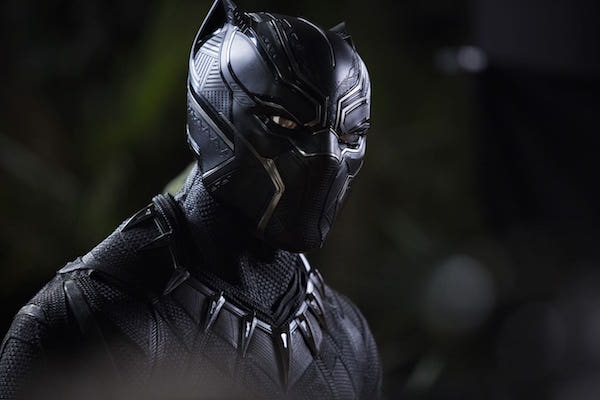


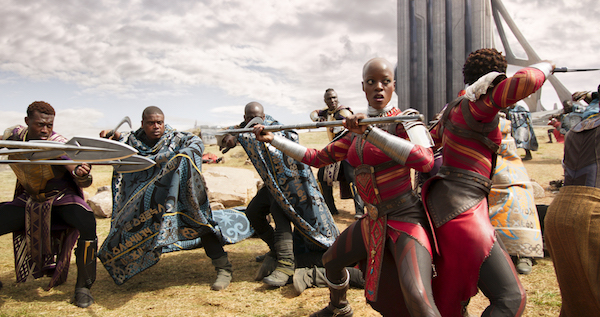
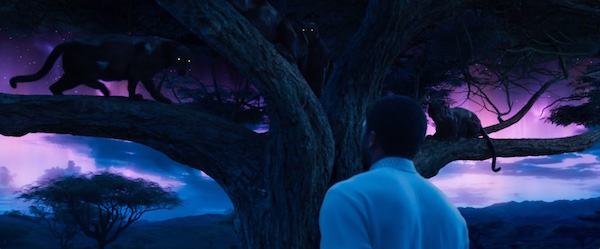




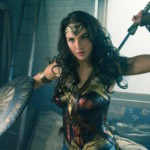
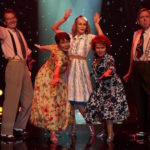
Re: Black History, two movies that are also enlightening are ‘Hairspray’, which helps younger audiences to pick up information along with musical entertainment, and ‘Hidded Figures’ which gives an accurate and more serious perspective.
T’Challa & Erik Killmonger give us cause to confront which behaviours are morally acceptable, when both characters appear to have a similar aim.
I felt that it was a strong cast, and the movie itself demonstrated a great deal of woman power.
I was also conscious of the accents, costumes and tribal colours & designs used. This was a very enjoyable view, in preparation for the next movie.
*Typo = ‘Hidden Figures’
I would agree with all your points there actually. This reminds me that I do need to watch more African films. I have yet to see Yeelen or Moolade and I actually haven’t seen Hairspray or Hidden Figures either.